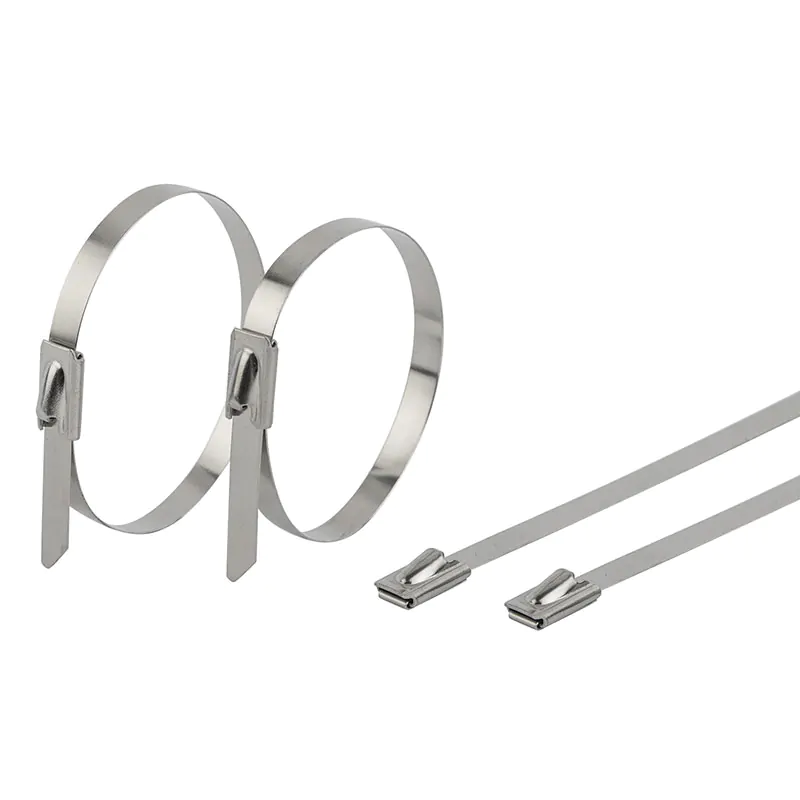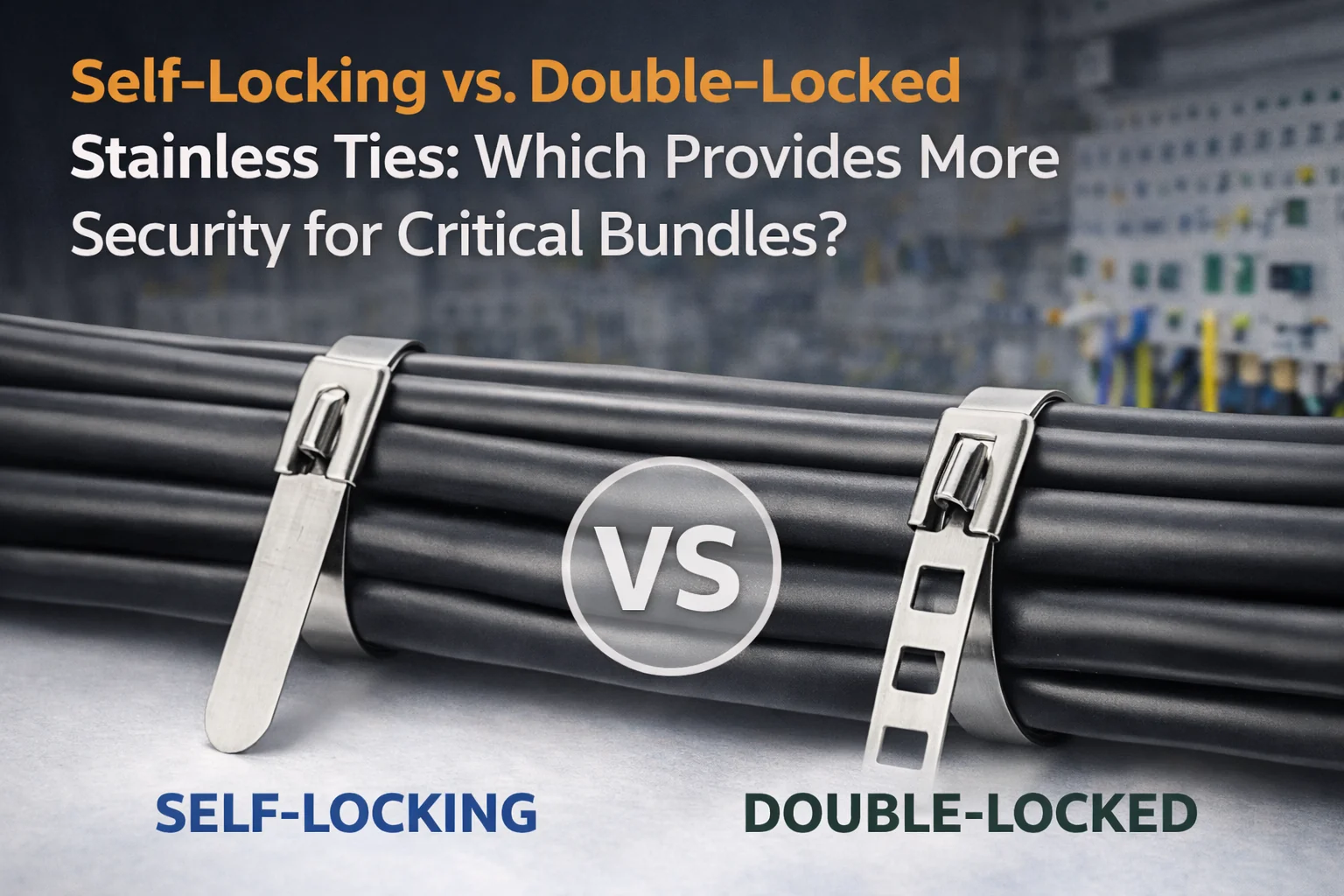Stainless Steel Strapping vs Plastic Strapping: How to Choose?
Publish Time: Author: Site Editor Visit: 38
Introduction
Selecting the right strapping is a critical decision in industrial packaging and transport securing. Stainless steel strapping offers superior strength, exceptional corrosion resistance, and tolerance to extreme temperatures, making it the go-to choice for heavy-duty, high-value, or demanding environmental applications. Plastic strapping (like Polyester/PET or Polypropylene/PP), on the other hand, leverages its light weight, cost-effectiveness, ease of handling, and non-marring properties for widespread use in general logistics and medium-load scenarios. This guide cuts through the complexity, outlining the core strengths and ideal use cases of each, empowering you to make the smartest choice for your specific needs.
What is Stainless Steel Strapping?
High-tensile metal bands fabricated from 304/316-grade stainless steel alloys. Critical strengths include exceptional load-bearing capacity surpassing conventional materials, lifelong rustproof and corrosion-resistant properties, and stable performance across extreme temperatures from -50°C to 300°C. Engineered for demanding applications like heavy machinery transport, marine container lashing, and outdoor structural fixing, it delivers irreplaceable durability when failure risks—from corrosion, harsh environments, or critical security demands—must be eliminated.
What is Plastic Strapping?
Industrial-grade polymer bands primarily made of Polyester (PET) or Polypropylene (PP). Delivers critical advantages in lightweight handling, cost efficiency, and operational speed: PET offers high tensile strength and shock resistance for heavy cartons and container units; PP provides flexibility at lower cost for light-to-medium loads. As a non-conductive, rustproof solution that protects cargo surfaces, it dominates general logistics, pallet securing, and automated packaging.
Key Differences Between Stainless Steel Strapping and Plastic Strapping
“This chapter serves as the core section of the article, providing a comprehensive introduction from nine perspectives and presenting the information in a tabular format for easier reading and understanding.”
| Dimension | Stainless Steel Strapping | Plastic Strapping |
| 1. Strength & Load Capacity | Ultra-high tensile (1200+ MPa) Binds loads ≥5 tons (e.g., ship engines, steel structures) | PET: 700-800 MPa (≈60% steel) PP: 300-400 MPa (≈50% PET) Max 2-ton capacity (e.g., machinery parts) |
| 2. Corrosion & Chemical Resistance | 304/316 alloy: Lifetime corrosion-proof Resists acids/alkalines/seawater (Critical for chemical/marine use) | PET resists weak acids/alkalines PP degrades in solvents (Requires coated variants for chemicals) |
| 3. Weather Resistance | Stable at -50°C~300°C Zero UV/rain/snow degradation over 30 years | PET: -40°C~80°C PP: 40% strength loss after 6 months UV Brittles below -20°C |
| 4. Durability & Lifespan | 30+ years outdoor service Reusable 100+ cycles (Lower lifecycle cost) | PET: 2-3 years (indoor) PP: 6-12 months (Mostly disposable) |
| 5. Flexibility & Installation | Rigid fixing requires tools (Pneumatic tensioner + seal crimper) | Elastic recovery, manual operation (Electric tools: 3 sec/strap) |
| 6. Cost Efficiency | High unit cost (¥15-30/m) Tool investment: ¥8,000+ Cost-effective long-term | PP: ¥0.5/m, PET: ¥2-3/m Tools: ¥300+ 40% faster packaging |
| 7. Safety Considerations | Edge protection required (Cut hazard) Conductive (Unsuitable for electronics) | Insulated & anti-static Non-scratching surface (Ideal for precision instruments) |
| 8. Recyclability & Environmental Impact | 100% recyclable (Remelted without loss) | PET: Recycled into fibers PP: 500+ year degradation (Pollution if incinerated) |
| 9. Application Suitability | 1.Marine container lashing 2.Nuclear/oil equipment transport 3.Permanent structural securing | 1.E-commerce carton sealing (PP) 2.Beverage pallet bundling (PET) 3.Automated packaging lines |
When to Choose Stainless Steel Strapping
Marine Container Lashing
- Saltwater exposure (Requires 316 SS)
Heavy Machinery Transport
- Loads ≥5 tons (e.g., turbines, presses)
Extreme Temperature Zones
- Cryogenic (-50°C) or industrial heat (>150°C)
Safety-Critical Applications
- Nuclear/oil pipelines, bridge cables
Permanent Structural Securing
- Steel frames/power towers (30+ years service)
Failure Risks of Alternatives
- Plastic strapping on ship decks →300% higher corrosion failure rate
- PP strapping at -30°C → >80% brittle fracture probability
Golden Rule:
- Mandatory for “3H” Environments — High corrosion, High load, High risk
When to Choose Plastic Strapping
E-commerce Logistics
PP Strapping for cartons (0.04/m)→Saves0.04/m)→Saves300+/10k parcels
Automated High-Speed Lines
PET Strapping with electric tools (3 sec/strap)→ 50% faster than steel
Light/Medium Pallets (≤2 tons)
PET Strapping for beverages/toiletries→ 30% better shock absorption
Surface-Sensitive Cargo
Non-scratching & insulated→ Zero damage for electronics/furniture
Short-Term Storage (<1 year)
PP Strapping low disposal cost→ Price=1/10 steel
Critical Selection Guidelines
Must use STAINLESS STEEL when:
- 1.Marine/chemical exposure
- 2.Loads >3 tons
- 3.Service >5 years
- 4.Temp < -20°C or >100°C
Must use PLASTIC when:
- 1.Consumer goods/e-commerce
- 2.Loads <1 ton
- 3.Turnaround <3 months
- 4.Surface protection critical
Conclusion
Make the Right Choice with Xinxing Cable: stainless Steel Strapping for extreme demands, Plastic strapping for efficiency and economy. As your expert partner in cable packaging solutions, Xinxing Cable masters the art of strapping selection, guaranteeing optimal protection for your valuable wire and cable products during transit and storage. Facing saltwater corrosion, heavy loads, or needing rapid turnover? We deliver precisely matched solutions and expert guidance. Choose Xinxing Cable for unrivalled product security—Contact us today to secure worry-free logistics!





